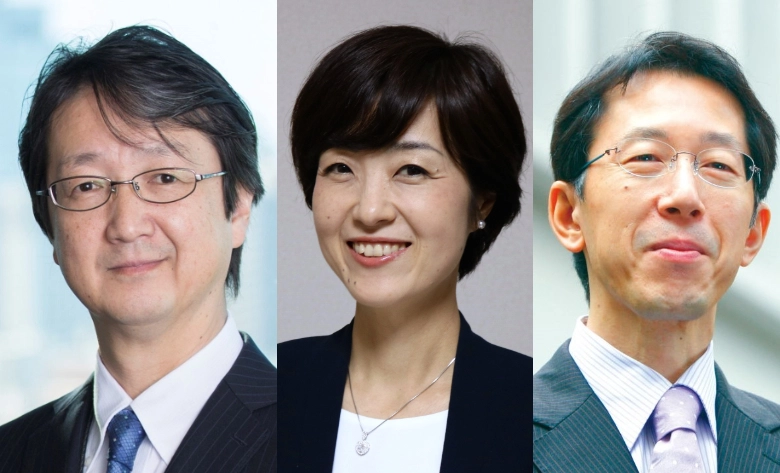How professors are exploring the implementation of online classes (Part 1 of 3)
Fri, Nov 27, 2020-
Tags
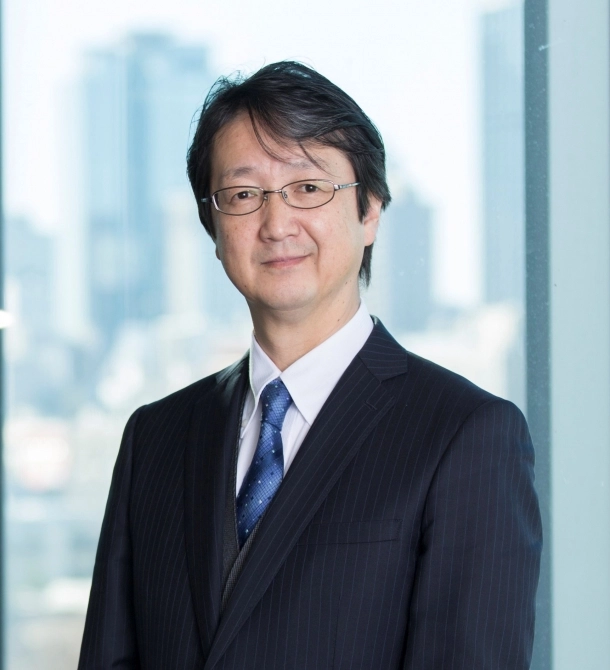
Professor Akinori Morimoto earned his PhD in Engineering at Waseda University. Before becoming a faculty here, he had also lived in the U.S. where he was a researcher at MIT. He was a Teaching Award winner at Waseda in 2019.
Due to the spread of the coronavirus, Waseda University had to conduct all classes online during the Spring 2020 semester. Although some classes are being carried out on campus in the Fall semester, online learning and teaching continue to be the norm for most classes. So how did the faculty members feel about online teaching? We have interviewed Professor Akinori Morimoto from the Faculty of Science and Engineering to find out more.
Could you tell us how your felt when you knew that all classes would be conducted online? Additionally, what was the most challenging thing at the beginning?
If you think of how the coronavirus had spread and the panic it was causing, it was only natural to conduct all classes online. I would say that Waseda deserve praise for being one of the first universities to decide that all classes should go online. I had anticipated that the implementation process would not be easy and was prepared to face the challenges.
For the past decades, I had been teaching students on a face to face basis. I would observe the student reaction in class and tailor my teaching approach accordingly. By examining the faces of students in class, I will know if students are on the same page as me. So whenever I realized students were uninterested, I would change the topic or incorporate jokes in class. However, teaching online makes this difficult and classes tend to be monotonous. As such, I have to be constantly mindful about these and make an extra effort to make online classes feel like they are similar to face to face classes.

As you continue to teach classes online, what improvements and achievements have you made?
I have change the way I would utilize the 90 minutes in class. If I am going to speak throughout the 90 minutes, that would be too much for the students to take. Considering that students have to attend other online classes as well, they would not be able to concentrate and absorb well.
So what I did was, I would keep my lectures to 45-50 minute short and spend the remaining time on Q&As and discussions to engage the students. As students would prepare for this part of the class beforehand, I have seen that the quality of questions being asked have got better. This part of the session would usually not be recorded as it is easy to get carried away and diverted from the main topic.
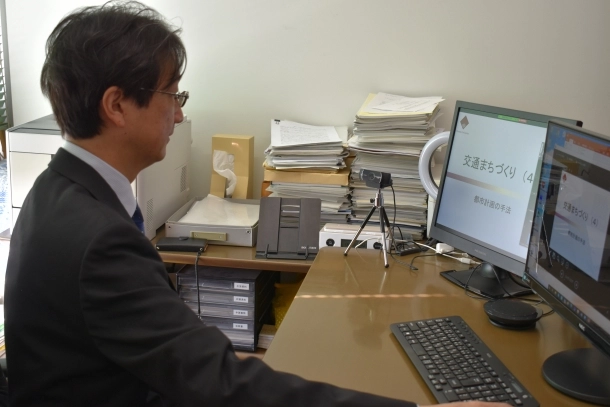
Professor Morimoto making video for his class.
What are some of the issues that need to be resolved?
One of the issues at hand now is how we measure the degree of learning of students. When conducting an online test, we have to set in place measures to prevent cheating.
So this was what I did. When designing a 50 minute test for the spring semester, I had students answer 50 questions whereby each question was solvable in a minute if the students understood the class. If they did not and had to refer to notes and materials, it would take them 2-3 minutes to figure out the answer to each question. Additionally, I prepared 100 questions for the test and each student would receive 50 of them at random.
As you can see, it takes a lot more preparation and energy for faculty to prepare classes and tests during this pandemic. From survey results, I also understand that it is mentally demanding for new students during this period of time so I set aside time for consultation. After classes went online, I have heard that student workload became heavier. To lighten student workload, I gave them less work to do but had them spend 10 minutes at the end of each class to write their self-reflection.
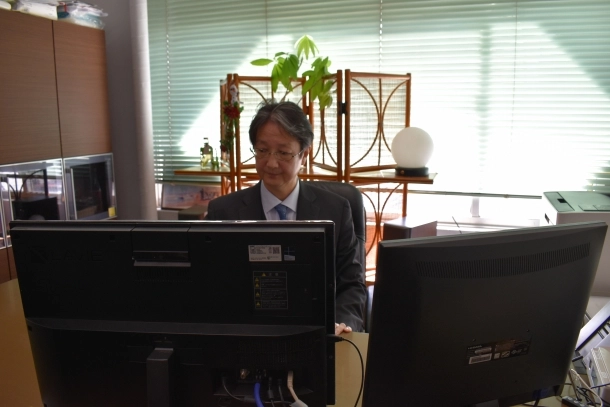
Professor Morimoto feeling good that his student attendance was better online compared to offline.
Do you have any message for the students?
As I specialized in urban planning, I have been receiving a lot of questions about how towns and cities should be designed to be in order to cope with the coronavirus pandemic. Japanese cities have grown stronger each time a natural disaster, such as the Great Kanto Earthquake and the Great East Japan Earthquake, hit. ICT has also been incorporated in urban planning to develop smart cities. I hope students would take the opportunity to think about what they can do. I also hope they would gain the necessary thinking, flexibility and adaptability skills essential to the new era.
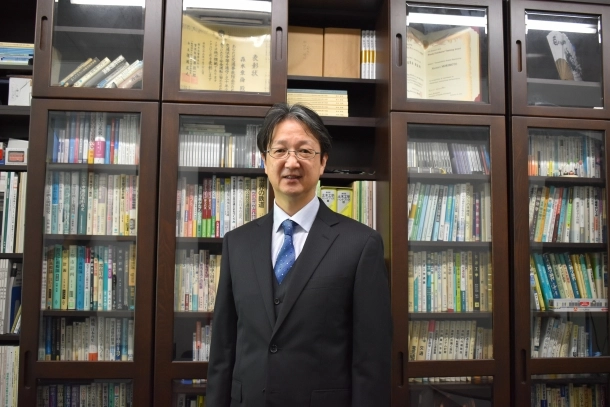
Professor Morimoto started writing a textbook for students in English-based degree programs during stay home period.
This is a translation of a Japanese article created by the Waseda Weekly team, which regularly produces articles of interest to Waseda students.


